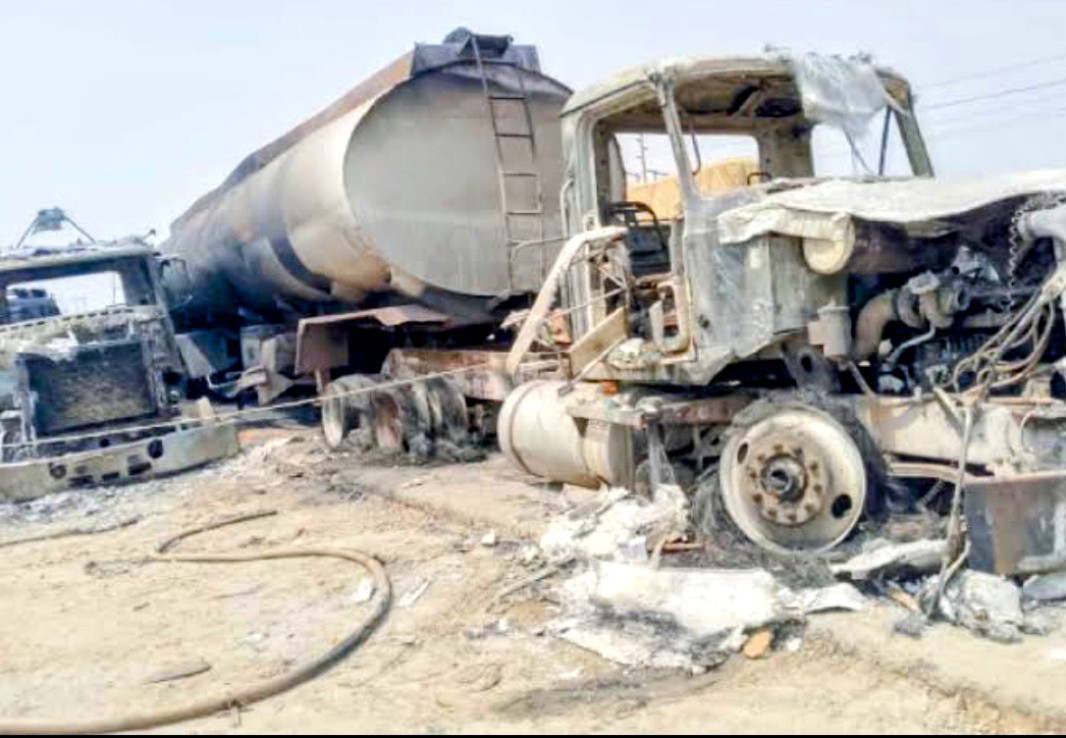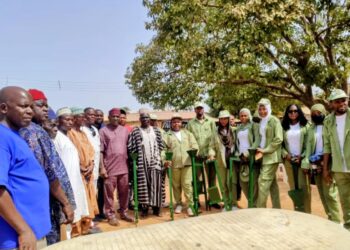STRENGTHENING TRUCKING REGULATIONS IN NIGERIA: THE URGENT NEED FOR A NATIONAL FRAMEWORK
The activities of truck operations, particularly heavy-duty vehicles in Nigeria, call for holistic measures to be put in place for effective regulation. Truck accidents resulting in the loss of lives and properties are now so common that they have almost become a routine occurrences in the Country, but unfortunately often treated with kid-glove responses.
According to the Federal Road Safety Corps (FRSC), between January and March this year, no fewer than 2,650 road traffic crashes were recorded nationwide, leading to 1,593 deaths and 9,298 injuries, an 8.3% rise in fatalities compared to the same period in 2024. Trucks, trailers, and tankers feature prominently in these figures.
Similarly, in 2022, record also shows that Lagos State alone, recorded 261 truck accidents, resulting in 92 deaths including 10 infants and 398 injuries. From January to July 2023, there were over 250 truck-related accidents in the state, leaving 42 dead and more than 200 injured. Beyond lives lost, the economic implication is troubling as FRSC estimates show that between January and October 2018, 196 truck accidents nationwide cost Nigeria about N9.8 billion in damages to vehicles, infrastructure, and livelihoods. Earlier in 2018, over 650 tanker and trailer crashes caused losses worth more than N39 billion.
Meanwhile, the dangers of heavy trucks extend beyond accidents into catastrophic disasters. In January this year, a devastating fuel tanker explosion occurred at Dikko Junction, near Suleja in Niger State. According to reports, the blaze was triggered when locals attempted to transfer fuel using a generator after the tanker had overturned. At least 86 people were reportedly killed and 55 injured, making it as one of the deadliest tanker-related tragedies in recent memory.
One major reason often amplified for these accidents is the poor condition of Nigerian roads. Indeed, according to statistics only about 30% of the Nigeria’s 200,000 km road network is paved, and poor infrastructure costs the economy roughly N450 billion annually in delays, accidents, and damage. But beyond infrastructure, there’s the deeper problem of weak and fragmented regulation of trucking operations. Nigeria has some general transport laws; such as the National Road Traffic Regulations (2012) and provisions under the Highway Code; and several agencies like FRSC, VIO, and NPA perform limited regulatory functions. However, there is no dedicated, and harmonized national framework for trucking currently, and state-level rules often conflict with one another. This has created loopholes and promoted an undisciplined culture among truck operators.
In contrast, countries like India; which shares Nigeria’s heavy reliance on road transport; have implemented strict trucking regulations. India’s Motor Vehicles Act 1988 and related rules mandate regular fitness certification of trucks, enforce axle-load limits through nationwide weighbridges, and establish truck terminals in cities to reduce congestion. The framework also ties taxation and tolling to freight movement, ensuring truck operators contribute to road maintenance.
Similarly, South Africa has developed a clear regulatory regime under its National Road Traffic Act and Cross-Border Road Transport Act. Truck operators must comply with defined weight and size restrictions, professional driver permits are compulsory for heavy-duty vehicle drivers, and weighbridges along freight corridors enforce compliance. South Africa also enforces time restrictions on trucks in certain urban areas to reduce traffic risks.
At the global level, the United States provides a gold standard for trucking regulation through the Federal Motor Carrier Safety Administration (FMCSA). U.S. laws cover driver working hours, mandatory maintenance logs, electronic monitoring devices, and heavy taxation on freight operators, proving that strict regulation can go hand-in-hand with a thriving trucking industry.
Nigeria, on the other hand, has multiple fragmented rules but no single national authority or legislation dedicated solely to trucking regulation. While states like Lagos and Kaduna have introduced measures, enforcement is weak due to the absence of a unified central framework. Agencies such as the FRSC, VIO, and LASTMA are overstretched, and enforcement is further undermined by corruption. Alarmingly, studies show that over 80% of Nigeria’s 10,000 petrol tankers lack critical safety features, and many heavy-duty trucks are significantly overloaded, worsening road crashes and destroying infrastructure.
Taxation is another neglected area. Despite causing billions of naira in road damage, truck operators are not adequately taxed. If properly structured, truck-specific taxation could be earmarked for road maintenance, safety inspections, and stricter enforcement.
Meanwhile, the dangers of heavy trucks extend beyond accidents into catastrophic disasters. In January 2025, a fuel tanker explosion at Dikko Junction, Niger State, killed 86 people and injured 55, while in October 2024, another tanker blast in Jigawa State claimed up to 147 lives. These recurring tragedies underline the scale of the problem and the urgency for reform.
Specifically, given Niger State’s strategic location at a central corridor connecting the North and the South-West, the state government cannot afford to be passive in addressing the trucking menace. It should establish a State Trucking Regulation and Monitoring Unit in partnership with the FRSC and VIO to enforce safety standards, control overloading, and regulate truck traffic, especially along major routes like Mokwa-Bida-Lambata and Suleja-Minna highways.
Furthermore, Niger State should create designated truck transit parks and weighbridge stations at key entry points. These facilities would not only reduce road congestion like we currently faced in between Mokwa and Bida- and improve safety, but can also provide a sustainable source of IGR through licensing fees, parking levies, road usage charges, and safety compliance permits. More so, with initiative such as that, Niger State could serve as a model for other corridor states while easing pressure on its infrastructure and boosting its economy.
The Federal Government must, as a matter of urgency, enact a Special Trucking Regulation Act to harmonize state laws, regulate truck proliferation, and establish a dedicated administrative body for enforcement. Such legislation should also provide clear safety standards, enforce periodic inspections, restrict daytime truck movements in cities, and ensure adequate taxation of operators to fund infrastructure and safety.
The protection of citizens’ lives and properties is a core responsibility of government. That duty must extend to ensuring road users and pedestrians are safe from preventable truck-related disasters.
May Allah guide us right.
Shehu Alhaji Kolo
Edusoko University, Bida
(alhajisk90@gmail.com)

















